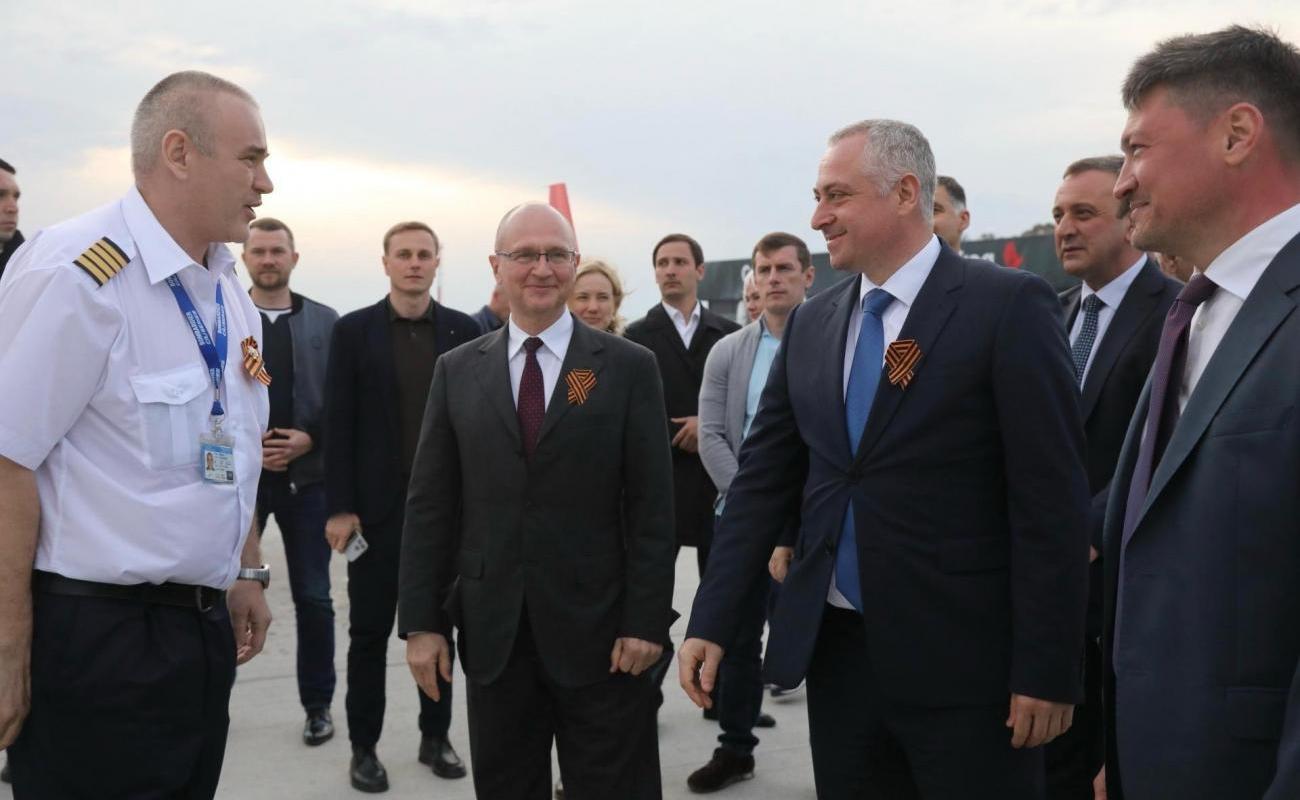Kremlin brings Abkhazia back into fold

On the first day of May, a Russian passenger airliner landed in Sukhumi, the capital of the separatist region of Abkhazia, disgorging a load of vacationers hoping to bathe in some Black Sea sunshine. This seemingly innocuous flight had large political ramifications, marking the reassertion of full Russian control over territory that under international law still belongs to Georgia.
The direct flight from Moscow was the first of its kind in 32 years, since a brief civil war resulted in Abkhazia breaking away from Tbilisi’s control and coming under the Russian army’s protection. The flight also marked the end of a period of tumult for the region, during which Abkhaz residents sought to shake off the shackles of dependence on Moscow. It is now clear, Abkhazia is firmly back under Russia’s thumb.
“We are committed to further cooperation,” said the newly installed de facto president, Badra Gunba, during the ceremony marking the launch of regular flights. “It is very important for us to develop our strategic, allied relations with the Russian Federation.”
Additional flights between Sukhumi and other Russian cities are already in the pipeline, all operated by airlines under Western sanctions.
Georgia has taken a hard-right turn under the leadership of the Georgian Dream party, and party leaders have been criticized for cozying up to Russia. Even so, officials in Tbilisi condemned the flight as a violation of Georgian sovereignty. At the same time, Levan Davitashvili, Georgia’s economics minister, acknowledged Georgia has no real leverage to stop the flights: “If sanctioned companies continue to operate in areas beyond our control, it is due to objective circumstances, those are occupied territories.”
The Georgian Dream complaints were viewed by many in Tbilisi as cynical, given that in May 2023, the government restored direct flights with between Tbilisi and Russia, triggering widespread domestic protests and criticism from international partners. European Union officials also criticized the Sukhumi flights.
The Georgian Foreign Ministry called the simultaneous launch of railway service between Russia and Abkhazia on May 1 “equally alarming.” According to Sergei Kiriyenko, the Kremlin’s new point man for Abkhazia and first deputy head of the presidential administration, who attended the launch of regular flights, the rail service was the byproduct of a recent meeting between Vladimir Putin and Gunba.
Since Abkhazia broke away from Georgia in the early 1990s, Russia has been one of the few countries to recognize its independence and has remained the territory’s principal financial lifeline. But that support comes with strings attached, as many in the region were reminded of during political protests that started in late 2024. The spark of destabilization was a proposed law that would enable Russians to scoop up lucrative properties in Abkhazia.
Russia's response to the Abkhaz protests was swift and punitive. Nearly all Russian assistance to Abkhazia was suspended. Resulting power cuts left residents with only a few hours of electricity per day, and public services ground to a halt.
The message was clear: resist Moscow’s plans, and you pay a severe price.
With the unrest still fresh in the background, Gunba, a Kremlin favorite, emerged victorious in a snap election held in March. Since then, Moscow has swiftly moved to restore “stability” in the region: electricity was restored, a meeting with Putin was held, and post-election “gifts” included a promise of easier access to Russian passports for Abkhaz residents.
Meanwhile, the Georgian government’s pro-Russian shift means that the de facto leaders of Abkhazia and South Ossetia, another Russian-occupied Georgian territory, have new ways to tweak Tbilisi.
For example, when responding to the Georgian government’s complaints about the resumption of Moscow-Sukhumi flights, Abkhaz representatives shifted the narrative, using the words of Georgian Dream founder Bidzina Ivanishvili to put Tbilisi on the defensive. They recalled that last fall Ivanishvili called for officials from the previous administration under Mikheil Saakashvili to be prosecuted for “burning our Ossetian sisters and brothers to the ground” and starting the Georgian-Russian war in 2008.
Both Abkhaz and South Ossetian representatives stressed that Georgia should focus on fulfilling Ivanishvili’s pledge, rather than getting worked up over airline flights, echoing Moscow’s line that “the criminals responsible for unleashing the war must be punished.”
